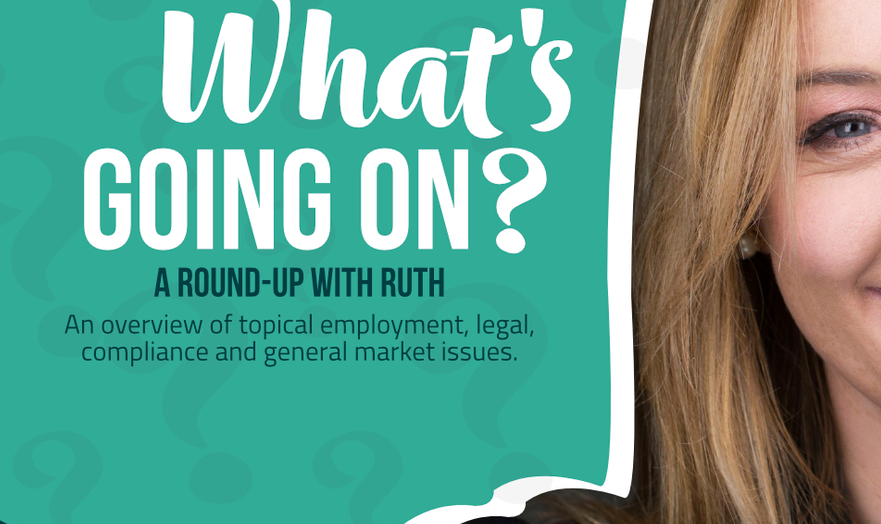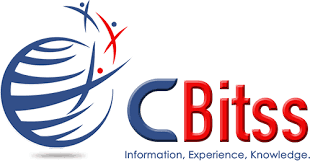And inspired by one of my 2 year old Grace’s favorite questions – you guessed it – what’s going on?
An Inappropriate Question?
Whilst the State’s vaccination programme has been widely heralded as a success, it leaves employers in a tricky situation regarding their employee’s vaccination status.
Per a recent Irish Times article, the biggest issue facing employers is the ruling by the data protection commissioner, Helen Dixon, that, as matters stand, most employers cannot ask their employees if they are vaccinated against Covid-19.
Neil McDonnell, Head of ISME, a representative body for the SME sector, recently told the Irish Times that its members are caught between a rock and a hard place.
“If there is a vulnerable person or someone who is not vaccinated, we have to make provision for them. That’s fine. You can work something out.”
“But on the other hand, we are not allowed ask and retain the information if they have been vaccinated. So how do we know if a person needs special attention and care and minding, unless they come and tell us? And even if they do tell us, we are not supposed to maintain a record. We are stuck between a rock and a hard place.”
As Melanie Crowley, Head of the Employment and Benefits team at Mason Hayes & Curran advises, “An employee in a pub can ask a customer if they’re vaccinated, but the pub cannot ask the employee,”.
Unless and until the Data Protection Commissioner clarifies the situation, employers need to treat this issue with caution.
Office versus Home
This is the on-going million dollar question.
Approaches appear to differ depending on sector and geography. Larger Tech giants such as Google, Twitter and Facebook have openly confirmed that they are working from home advocates. However, other big tech multinationals are less convinced. Reed Hastings, the Netflix co-chief executive told the Wall Street Journal last year that “not being able to get together in person, particularly internationally, is a pure negative” and the CEOs of Goldman Sachs declared working from home to be “an aberration”.
The Delta variant is also influencing this decision, particularly in the US. It emerged in recent weeks that Blackrock, (in the US) has delayed its plans for a full move back to the office, pushing back the return date until the start of October from the end of September due to Delta variant concerns.
Whilst many companies have yet to fully commit, from our discussion with clients here at Phoenix, a hybrid model with a 3/2 split is emerging as the most popular approach.
In terms of when companies will confirm their new agile working policy, the general consensus is that as the number of vaccinations continues to increase and schools shortly re-opening, a September deadline is fast approaching!
Digital Assets Domination Continues
A French asset manager, Melanion Capital, is set to launch an EU-regulated UCITS Exchange Traded Funds (ETF) fund that closely tracks the price of bitcoin. This is the first time that investors will be able to access the volatile asset through mutual funds across the EU.
Many national regulators have been slow to authorise UCITS funds which focus on digital assets (which includes bitcoin) given the volatile nature of this asset class and the high level of investor protection UCITS products offer. Therefore, the approval by the French regulator of this UCITS ETF, which will track a basket of up to 30 stocks in sectors such as cryptocurrency mining and blockchain technology, and which Malanion says is up to 90 per cent correlated to the price of bitcoin, is an interesting development. One to watch.
Fighting (Virtual Financial) Crime
The prominence of virtual assets in our global financial system continues to increase. This poses new and interesting considerations for global legislators, regulators and supervisory authorities. Closer to home, one relevant recent response is the 5th Anti-Money Laundering Directive (5AMLD) which has extended Anti-Money Laundering and Countering the Financing of Terrorism (‘AML/CFT’) obligations tentities that provide certain services relating to virtual assets.
5AMLD was transposed into Irish law by way of the Criminal Justice (Money Laundering and Terrorist Financing) (Amendment) Act 2021 (the “2021 Act”), which commenced on 23 April 2021.
What are Virtual Asset Service Providers or VASPs?:
VASPs are firms that provide certain services relating to virtual assets such as offering an exchange between virtual assets and fiat currencies. Exchange between different forms of virtual assets, transfer of virtual assets such as moving a virtual asset from one address or account to another. Providing custodian wallet services and participating in and providing financial services related to an issuer’s offer and/or sale of a virtual asset.
5AMLD & Implications for VASPS:
- 5AMLD, and the 2021 Act, requires VASPs to comply with AML/CTF requirements as per the 2021 Act, they are now ’’designated persons’ for the purposes of the general AML/CFT obligations set out under the previous AML Directives and Irish implementing legislation.
- As well as complying with these obligations, VASPs must now register with the Central Bank for AML/CFT purposes. The CBI will maintain a Register of VASPs and may impose conditions on such registrations.
- The 2021 Act nominates the Central Bank as the supervisor for VASPs. Confers powers on the regulator to address the beneficial ownership of VASPs. It including a power to restrict the acquisition of beneficial interests in VASPs and to require the prior approval of the Central Bank for such acquisitions.
The Central Bank has advised that its AML/CFT supervisory approach to VASPs replicates its existing graduated approach to the AML/CFT supervision of credit and financial institutions under the CJA 2010 to 2021 i.e. higher intensity and intrusive supervisory measures (e.g. onsite inspections and review meetings) are used to monitor firms that present a higher risk of ML/TF.
However, in a recent A&L Goodbody legal update, the law firm notes that for the second year running. The Central Bank has emphasised its focus on VASPs when setting out its supervision and enforcement priorities.
So clearly, it is time for VASPs falling within the Irish legal and regulatory regime. To familiarise themselves with their new 5AMLD obligations and get their house in order.
Nowhere to Hide
Continuing on a similar theme, earlier this summer, the Department of Finance, published the General Scheme for the long anticipated Individual Accountability Framework (IAF), which includes a Senior Executive Accountability Regime (SEAR) and prompted by the tracker mortgage scandal.
It is anticipated that the legislation, which many argue will have a significant impact on the Financial Services industry in Ireland, will be enacted and passed by the Dáil in the second half of 2022. DLA Piper provide a good overview in a recent regulatory briefing.
Tougher Penalties for Individual Executives
The legislation also introduces tougher penalties for individual executives in the sector
- Senior executives in banks, insurance companies and investment firms who are being investigated by the Central Bank could face suspensions of up to two and a half years (up from six months) while the probes are being carried out.
- The Government is also going to close a loophole which allows financial sector executives to avoid Central Bank investigations into their fitness and probity by leaving their jobs.
- The general scheme of the Bill also states that the Central Bank will, for the first time. Be able to investigate financial sector executives who performed controlled functions in firms or institutions in the past.
- Individuals will be at risk of fines of up to €1 million and potential debarment from employment in the financial sector – on a temporary or permanent basis – if they are found to be in breach of the new senior executive accountability regime.
And finally, Random : Baby Grows Up
Remember that iconic Nirvana Nevermind album cover with the naked baby swimming in a pool towards the dollar bill?
That baby is now a 30 year old man who is claiming $2.5m damages for being ‘exploited as a minor’ as he claims that his parents never gave their release for the photos and were not paid.
Good old Daily Mail!!




